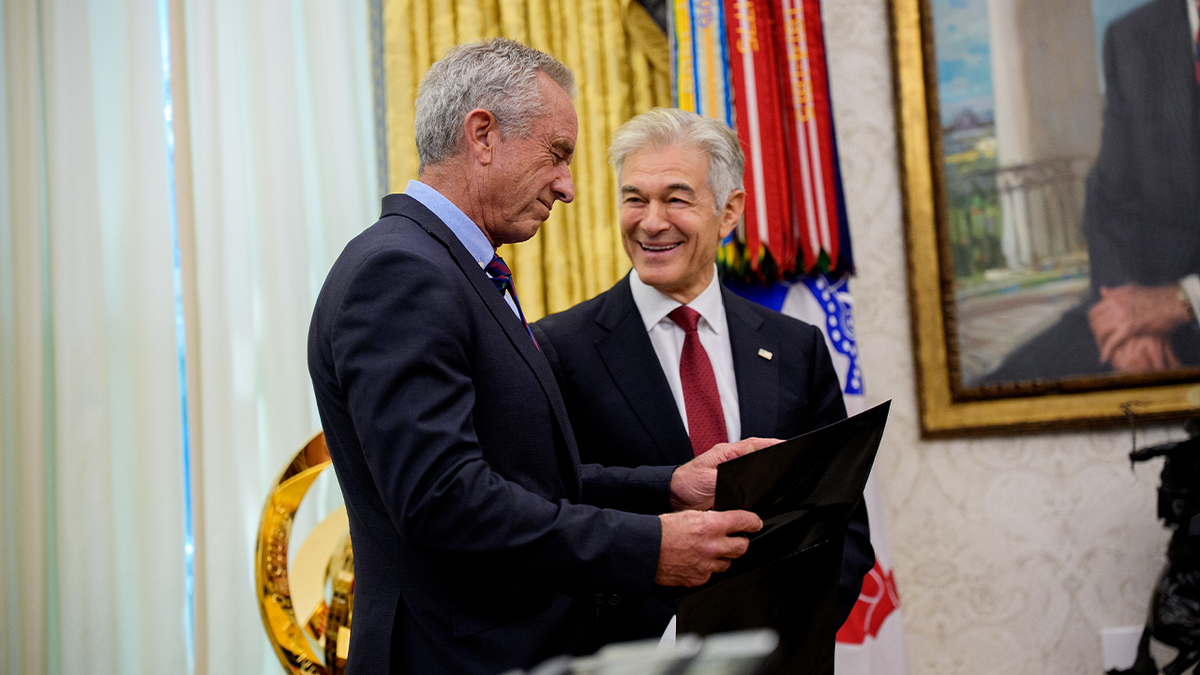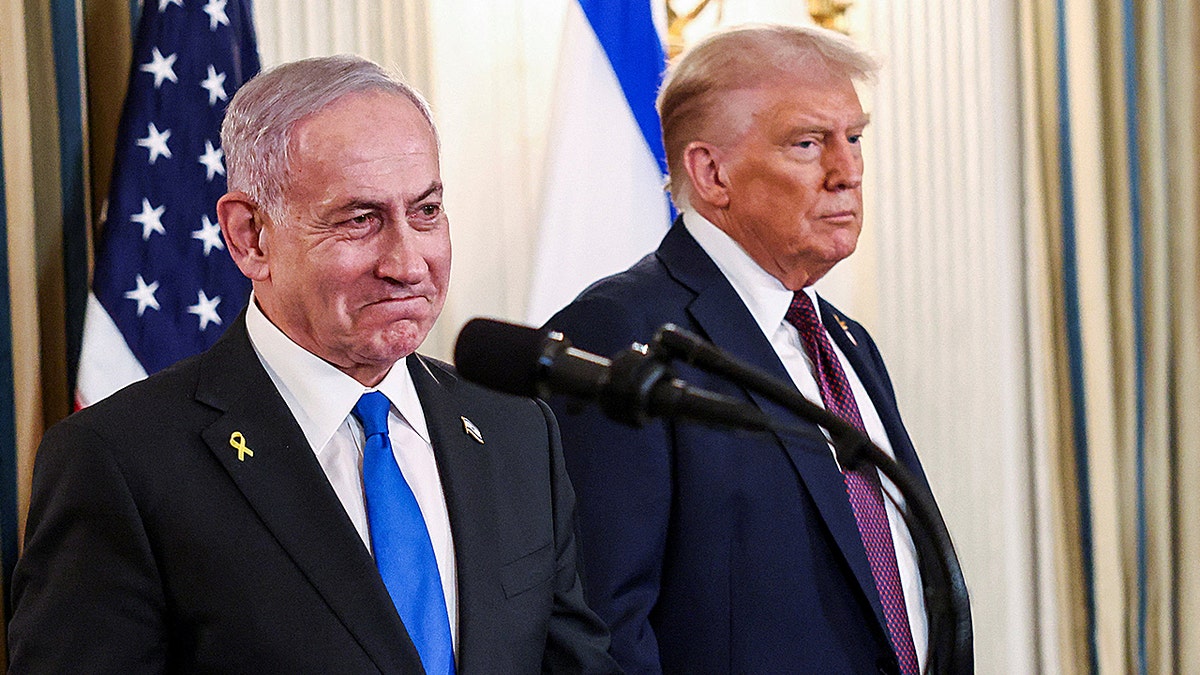

It was an action-packed week in America that ended with a government shutdown as Democrats and Republicans failed to arrive at a compromise on health care benefits.
But despite what you heard from the mainstream media, that wasn’t the big health care story of the week. It was this: On Tuesday, the Trump administration reached a deal with Pfizer to lower the cost of drugs for Americans, reversing decades of unfair pricing in which American patients paid up to four times more than Europeans for drugs that were developed in our own country.
TRUMP SAYS 'REAL CHANCE FOR GREATNESS' AS NETANYAHU WHITE HOUSE MEETING LOOMS FOR GAZA TALKS
Pfizer agreed not to launch new drugs at a higher price in the U.S. than in other wealthy countries. It also agreed to sell drugs to Medicaid at lower prices and to sell drugs at a discount to Americans without insurance.
The deal will mean huge relief for Americans living paycheck to paycheck, who can expect to pay hundreds of dollars less a month for lifesaving drugs.
As head of Health and Human Services Robert F. Kennedy, Jr. put it, "No family should ever be forced to choose between filling a prescription and putting food on the table."

Health and Human Services Secretary Robert F. Kennedy Jr. speaks with Dr. Mehmet Oz (R) before swearing him in as the Medicare and Medicaid Services Administrator during a ceremony in the Oval Office at the White House on April 18, 2025 in Washington, DC. ((Photo by TIZIANA FABI/AFP via Getty Images))
Lowering the cost of drugs is something every Democrat has promised to do for years—and none did. It was President Trump, a Republican, who did it. That’s the real story of last week, not whether the Democrats or Republicans are to blame for the shutdown, but the fact that Trump stole yet another signature issue out from under the Democrats’ noses in order to deliver for working-class Americans.
So how’d he pull it off?
Trump ignored the experts who insisted that health care is the Democrats’ bag.
He used tariffs to create an incentive for Pfizer to begin reshoring the manufacture of drugs and to demand other nations carry more of the burden. And in so doing, Trump changed the rules of the market to align the interests of a private company with those of its consumers.
And he called both RFK Jr. and Dr. Mehmet Oz, the federal administrator of the Centers for Medicare & Medicaid Services, relentlessly, at all hours of the night and day, demanding they make headway.
These are the three signature moves that define Trump’s deal-making approach:
- Ignore the conventional wisdom
- Identify—and identify with—the interests of the two warring sides
- Be tenacious but nimble, unafraid to pivot if a better offer presents itself
Ignore. Align. Play the long game.
Trump doesn’t only use this signature deal-making playbook for domestic policy. It’s how he’s been navigating conflicts across the globe too, as he did this week.
On Monday, Trump welcomed Israeli Prime Minister Benjamin Netanyahu to the White House with a single goal in mind: getting Netanyahu and the Gulf Arab states that underwrite Hamas to sign off on a 21-point peace plan to end the war in Gaza. This was no mean feat. Netanyahu has consistently resisted calls to end the war before Hamas is fully eliminated, and the Arab states were united in their fury after Israel bombed Qatar last month.

(Kevin Lamarque/Reuters)
And yet, Trump managed to get both to sign off on the plan, which, if Hamas agrees to it, would see the immediate release of all the remaining hostages, an end to the hostilities, and a plan for the de-radicalization of the Gaza Strip.
Again, he used the three-pronged approach: Ignore the experts, identify with the interests of both sides, and play the long game, pivoting when necessary.
Trump ignored the conventional wisdom of the Middle East that the battle is about conflicting values. Rather than pick a side, Trump has been proudly, avowedly pro-Israel while also making a tour of the Gulf Arab states early in his second term, securing trillions of dollars in investments in the U.S. from the U.A.E., Saudi Arabia, and Qatar. In so doing, he laid the groundwork necessary to prove to those countries that he had their best interests at heart—because they were now intertwined with our interests.
This was step two: He convinced both the Israelis and the Arabs that he understood their interests, identified with them, and would not betray them because it would mean betraying the U.S. And having secured the trust of the Israelis over a decade of having their backs, Trump forced Netanyahu to call Qatar and apologize for the bombing. Trump also signed an executive order upgrading the U.S. commitment to Qatar with security guarantees, signaling he was serious about reigning the Israelis in.
What’s amazing is that none of this would have been possible without Israel’s bombing of Qatar. Viewed widely by the conventional wisdom as a "costly failure" on Israel’s part, the Trump negotiating team saw it as the opposite—an opportunity. Steve Witkoff and Jared Kushner saw the crisis as leverage to end the war, sources told Axios.
They noticed "the Arabs were speaking with one voice" to shout at Israel, a Trump adviser familiar with the discussions told Axios. "It became clear, particularly to [Witkoff], that this rallying cry that seemed negative at first could be turned into something positive."
Ignore the experts. Align the interests. Play the long game and pivot when necessary.
If Hamas accepts the deal, history will have been made thanks to a President who understands the art of the deal like no one else, on the domestic front and the international front.
